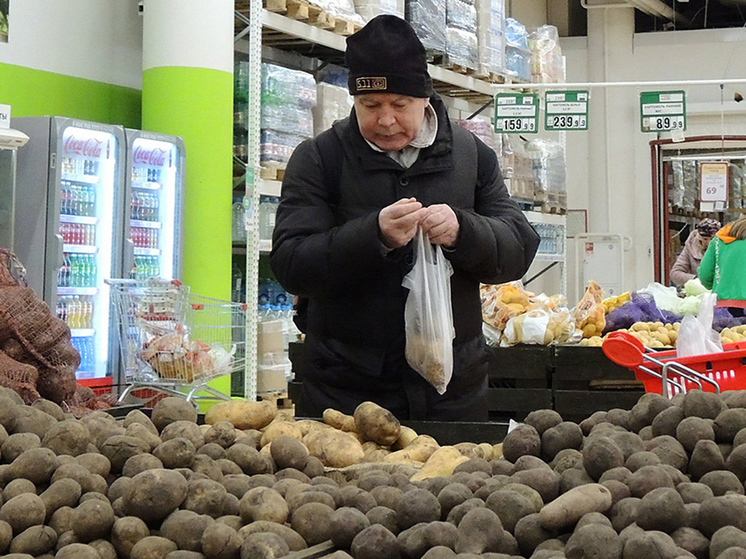Supermarkets involved in charity can be exempt from VAT
The Federation Council has prepared a bill that exempts retail chains from paying 20 percent value added tax (VAT). Fiscal breaks are going to be given to traders when donating products with expiring dates to needy Russians. To implement the idea, it will be necessary to simplify as much as possible the procedures for checking products that can go bad from day to day.

How beneficial will such a measure be for sellers and buyers? Stores complain that now it is more convenient for them to throw away products with an expiring date rather than sell them “to the last”, including VAT.
“Paying VAT by retail enterprises for distributing food to people in need is completely irrational from the point of view of federal budget revenues,” says Natalya Milchakova, leading analyst at Freedom Finance Global. — Traders usually distribute small quantities of food that is about to expire, which the poor do not have enough of. There is no point in expecting business incentives for better work and increased investment in new technologies, for example, in creating high-quality food storage, if you also have to pay taxes for such purposes. The need to abolish VAT for retail trade for free distribution of products is long overdue. This decision will benefit sellers and low-income citizens. The budget, in turn, will not suffer a big loss, because sellers will begin to carry out such promotions not every day, but once and irregularly.
Petr Shelishch, Chairman of the Russian Consumer Union, says that the Federation Council initiative is not the first “approach to the bar”:
— Four years ago, a similar bill was already being prepared within the framework of the expert council of the State Duma Committee on Economic Policy. Unfortunately, at that time the document was not supported by the Ministry of Finance, which had the final say in such matters. If the position of this department has changed, then this is a favorable circumstance for the promotion of the bill.
It is an absolute disgrace when food products that could serve as a good resource for low-income families are thrown away and destroyed. Moreover, it is impossible to estimate the share of “overdue” food, which, under the guise of liquidated food, goes to the “black market”, where it is subsequently successfully sold at bargain prices. In this case, the food completely spoils and can no longer go to the dinner tables of Russians, who have difficulty satisfying their own appetite and feeding their children enough. The majority of our able-bodied fellow citizens have a huge number of dependents. Such people have significantly lower incomes than even pensioners. In 2018, the income tax on charitable donations of such products to the poor was abolished. Therefore, the abolition of VAT for similar transactions would be a logical continuation of the announced state policy.
Will such a practice be in demand? How will the decision benefit retail chains and low-income customers? How will the new law affect prices in grocery stores? Will food products become cheaper?
“They won’t become cheaper at all,” says Pyotr Shelishch. — This will, rather, affect the fate of the products themselves: which of them will end up in the trash bin, and which will serve the benefit (and wallet) of the population.
Anna Milchakova shares her opinion that food disposal is also an expensive procedure. According to AKORT, every day retail chains have to liquidate expired goods worth up to 6-7% of the total cost of purchased products. The introduced conditions will certainly be in demand, since there will be a huge number of people willing to receive free food.
Food with an expiring date is not expired… The free transfer of such products will not affect the health of low-income Russians ?
“If products are resold “to the left” or go into garbage cans, from which representatives of the most disadvantaged segments of the population continue to take goods, the consequences risk being disastrous,” answers Peter Shelishch. — The state will have to treat citizens affected by clearly expired food. If food is given free of charge to the poor at least a week before the expiration date, there will be much fewer sad incidents.
How do they deal with expired food abroad — bury it in the ground or feed it to animals? Which is more profitable? Maybe retail chains should more carefully control the level of food purchases and sales?
— Why don’t domestic retail chains today officially transfer products that are on the verge of expired to the poor? Because it is much cheaper for retailers to transfer such goods to their regional partners, who are provided with food recycling agreements. It is not profitable for retail chains to distribute almost expired products and pay 10-20% VAT for this. With the abolition of taxes, such sales operations will increase significantly, says Peter Shelishch.
— In other countries, this practice is widespread. For example, in Finland, Germany and the USA, retail chains periodically organize promotions to distribute goods with expiring dates to low-income citizens and migrants, Natalya Milchakova gives an example. — The abolition of VAT for the disposal of products with an expiring or expired shelf life will not affect the prices of non-expired products. But on the eve of the expiration date, 1-2 days in advance, some retail chains are already reducing prices for such goods; the discount can reach 35-40% of the original price of the product while it was fresh.


